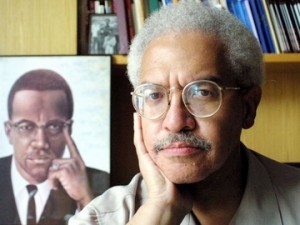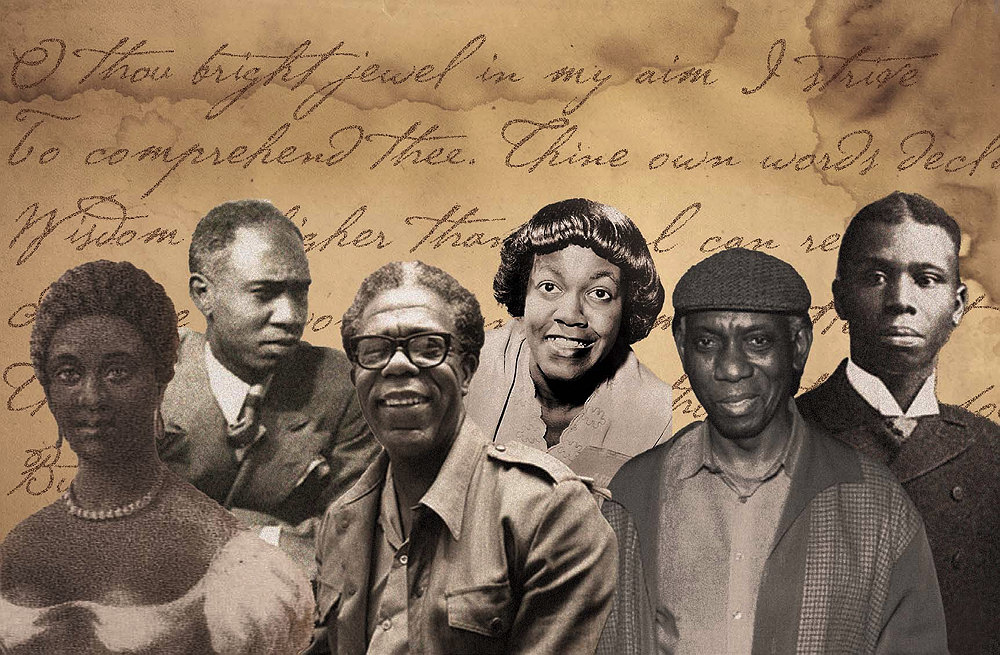(ThyBlackMan.com) I just finished reading Manning Marable’s biography of Malcolm X. Let’s look at the controversial claims it made, the key ideas it contained, and some of the fascinating coincidences it brought to light.
Malcolm X, like Martin Luther King, was assassinated at age 39 on the eve of turning 40 the age at which, in African society, one becomes an elder and attains the highest wisdom. Powerful and influential as they were, they were cruelly snatched away from us before they had actually reached their full potential. Today, the building where Malcolm X died, The Audubon Ballroom  on Broadway in New York, has been made into a museum to honor both King and Malcolm. The number of the building, just happens to be, 3940.
on Broadway in New York, has been made into a museum to honor both King and Malcolm. The number of the building, just happens to be, 3940.
Malcolm, many thought, would one day succeed Elijah Muhammad as the head of the Nation of Islam. However, Elijah’s son, Wallace Deen Muhammad, ended up succeeding him. Malcolm was the seventh child born to his family, likewise Wallace was the seventh child born in his family. Malcolm headed Muslim Mosque No. 7 which was located in Harlem. Louis Farrakhan succeeded Malcolm as leader of Mosque No. 7. Malcolm broke away from Elijah and, at the time, Farrakhan criticized him for doing so. However, years later, after Wallace came to power as Elijah’s successor, Farrakhan would follow suit and leave the Nation, and like Malcolm, also set up his own independent Muslim organization.
When Malcolm was a child his house was set on fire, and his parents barely got the children out safely. His father would later falsely be accused of setting the fire. Towards the end of his life, Malcolm’s house was set on fire and he and his wife, Sister Betty, barely got the children out safely. He was later, like his father, falsely accused of setting the fire. Both Malcolm and his father died violent, mysterious deaths, and white reactionaries are strongly suspected of being involved in both men’s demise.
Malcolm died just as his autobiography was coming out. Manning Marable died just as his Malcolm X biography was hitting the stands.
I was not at all surprised that the book proved controversial. The essence of Malcolm was controversy. Everything he did. Everything he said. Everything he stood for was controversial in America, from the moment he enunciated them, right up until today. Marable, however, seemed to court even more controversy by speculating about sexual issues. Free speech allows him to do so. But all that he presented was speculation. What else could it be? You can never know what a person does, or does not do, behind closed doors unless you are there. Furthermore, those issues were only a few pages in a 600 page book, so I hardly paid them any attention.
What I take fault with is where, on a number of occasions, Marable questions Malcolm’s judgement. I think he would have been better off sticking with the facts or saving the editorializing for a separate chapter toward the end.
What really engaged me was his recounting of the tumultuous events in America in the 1960s. It was a time when bold, completely fearless young leaders rose to commanding heights and courted death and never flinched, many paying the ultimate price. Martin Luther King, Medgar Evers, Malcolm X, John F. Kennedy, Robert F. Kennedy, just to name a few. What we witnessed in the 60s can literally be called the “Death of Charisma.” Powerful, mesmerizing figures of stupendous oratorical talent, and incandescent personal magnetism ruled the airwaves, and one-by-one were cut down. All of that was 40, 50 years ago, and still, their shadows loom large in our collective memory, as we wander in a wilderness led by false prophets and manufactured political personalities benumbed by a stupendously engaging mass media of distraction.
Books like this, even with their flaws, are to be applauded. They engage our minds as they ignite spirited exchanges of ideas rooted in our researching, re-reading, and ultimately re-interpreting, our own history in endless give-and-take. The term “revisionist history” is a common one. But is not all history revisionist? Who can lay claim to absolute truth? Not Alex Haley. Not Manning Marable. No one. Doubtless, some young person who reads this book today will write an even more compelling retelling of Malcolm’s life tomorrow, only to eventually be eclipsed by another writer perhaps as yet unborn, and on and on.
Malcolm X brought Islam into the American consciousness. Malcolm X spawned the Black Power movement. Malcolm X was the first to call for Black Studies. Malcolm X took the struggle for Black equality onto the international stage. Malcolm X, and Muhammad Ali, were at the cutting edge of our embracing of our African heritage and our taking pride in calling ourselves Black.
Another thing that struck me in reading this book is how, throughout history, movements that challenge the status quo, not just here in America but around the world, usually end up becoming involved in bitter internal feuds. And outside forces, the powers-that-be, manipulate this infighting toward deadly ends.




















Mohammed, thanks for the link. It rebuts strongly rebuts many of Marable’s key assertions.
Arthur Lewin
Sorry here is the report- don’t let those aligned with those adamant to assassinate brother shabaz do it a second time :
http://www.jpanafrican.com/docs/vol5no1/5.1MX-Morrow.pdf
As a British Indian muslim growing up in the UK this man was a hero to me. To tarnish his image years after his death is beyond contempt and the lies made in this book are nothing more than unsubstantiated salacious gossip. Please do take a second to review this report, hope it put your mind at ease as it did mine. Asalaamulaykum (rest in peace brother shabaz)
Thank you, Brother William. I think your observations are on the money, as regards the world the media is projecting at us. There’s a reason television shows are called programs. They are designed to overwhelm, and shape, our reality. As for those of us who understand the game that’s being played, they are aimed at inducing despair as we behold the breadth and depth of the brainwashing.
There are many, many fine young people who are doing great things for themselves and those around them. For example, here in New Jersey, we have Dr. Randy Pinkett, the athlete/scholar/entrepreneur/philantropist following directly in the footsteps of Paul Robeson. There are also the three young men from Newark, Drs. Davis, Jenkins and Hunt, who made a pact in the 7th grade to become medical doctors and never swayed. Their book, The Pact, chronicles their struggles and their accomplishment. They speak all around the country to schools and community groups. Every penny they earn thereby is used to sponsor scholarships for those coming up behind them.
You will hardly hear the genuine accomplishments of our young men and women in the media, or any real, rational discourse pertaining to us. The media has been neutered. It no longer functions, as it did in the 60s, as a transmitter of genuine news and information for the benefit and betterment of all. For that we must look, like we are doing right now, to thyblackman.com and other websites and sources of information not beholden to outside interests at all.
Arthur,
Your words ring true with passion, the “ tumultuous events in America in the 1960s. It was a time when bold, completely fearless young leaders rose to commanding heights and courted death and never flinched” this is so true.
I look for the leaders of my generation and see only those who look for news bites, sensationalism and opportunities to get their names in the media, faces on television, etc. They do not PRODUCE any meaningful product or outcomes. I look for the leaders of my son (19 years old) and see rap, sports and entertainment people who only promote who pays the most.
Our Black Studies are laughable and not supported by schools, churches and other civic organizations.
It seems that when people mention embracing Africa, or the African Diaspora they are looked down, questioned and scorned sometimes.
Something has to change and our people need to be enlightened.
What do you think of my thoughts.
Wm Jackson
I find the book “Malcolm X Bio By Manning Marable” an interesting read.
I try to just digest the historical facts that enlighten my mind and learn
new things about Malcolm X that I admire more and can either relate to or
when the opportunity presents itself share with others.
There seems to be a need for authors to “drive” readers to their books by putting statements of sexuality, marriage problems, child-rearing challenges.
What parent does not have challenges rearing their children and what husband and wife do not have challenges in their marriage. What person does not have a unique impression of Sexuality. My take is what will allow me to grow and improve myself. Just like Smiley and West, what benefit do they get out of slandering, criticizing the President of the United States?
I take each entry with a grain of salt and understand people write books to make money, so the more controversial the better.
Marable seemed to imply that both Haley and Malcolm badly needed money and so they may have structured the book to maximize its sales. However, one can then speculate that he too, in turn, may have done likewise to maximize his sales. By the way, note how American historians refused to acknowledge that Jefferson was the father of Sally Hemmings children right up until the point that DNA proved it beyond a shadow of a doubt. Here the author prints rumors and speculation.
I WAS THOROUGHLY TURNED OFF AND PISSED OFF at Marable’s subjective, unsubstantiated, and phony innuendos “exposing” Malcolm X as a homosexual.
I used to respect marable and his writings. Not any more. There was NO REASON to even bring it up, even if it were true, other than to create a controversy to sell more books, which is the sellout that too many of us “ex-activists” have done to keep up with the “zeitgeist”.Baldwin, Lomax, Rustin, and a few others were realitively “open” about their sexuality, and they still maintained themselves as relevent and effective change agents..But for some “intellectual Negro” to speculate on one of our most efficacious heroes’ sexual orientation for profit is beyond reprehensible.